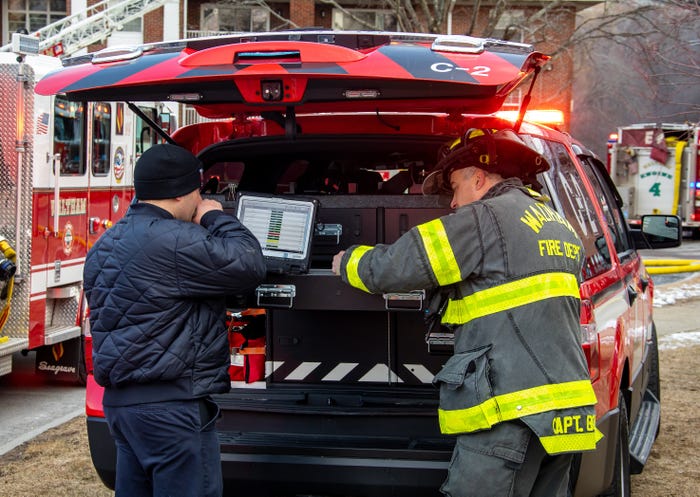NENA’s latest version of i3 standard receives ANSI accreditationNENA’s latest version of i3 standard receives ANSI accreditation

NENA: The 911 Association yesterday announced that the American National Standards Institute (ANSI) fully approved the third—and latest—version of i3, the IP-based NENA standard for next-generation 911 (NG911) networking and core services.
Earlier this year, the fact that ANSI had not approved Version 3 of the i3 standard was a point of contention, because legislation proposing $15 billion in federal funding to accelerate NG911 deployment throughout the U.S. would have required that the money be spent on solutions accredited by standards bodies like ANSI.
Today, the significance of the ANSI approval of i3 is not as clear, as the previous NG911 funding language for “commonly accepted standards” does not specifically cite ANSI, so the fact that it is a NENA standard could meet the standard. In addition, the NG911 funding proposal—currently reduced to $10 billion—currently is part of the $3.5 trillion budget-reconciliation package that faces some notable political challenges to becoming a reality.
Still, with the ANSI approval, there should be no question that 911 entities would be allowed to use federal money to deploy i3-compliant solutions in their efforts to offer NG911 services.
“It’s either a big or a small milestone, depending on your perspective,” Brandon Abley, NENA’s director of technology, said during an interview with IWCE’s Urgent Communications. “NENA has a lot of standards that are ANSI-approved, and it was always conspicuous that the big one—the most important one, the one that people who aren’t that familiar with standards know the name of—i3, was not accredited. That drew a lot of attention, and that is no longer a question.
“From my perspective, the accreditation work is my responsibility, and myself and my staff shepherded this through. So to me, it just feels like the natural conclusion of the series of workdays. But I expect that, to others, it’s certainly a big deal and a big milestone.”
NENA President Jennifer White applauded the work of NENA volunteers who developed the i3 standards and oversaw the approval process within NENA—an effort that was concluded in July—and by ANSI.
“NENA volunteers worked tirelessly to develop and publish i3 Version 3 through the rigorous, consensus-based processes that NENA is known for,” White said in a prepared statement. “ANSI’s approval validates this process and provides the public-safety community with further confidence in this comprehensive, open standard for NG911. This will no doubt hasten and strengthen 911’s collective push to see NG911 systems, services, and products deployed from coast to coast.”
Historically, 911 services have been funded and managed almost entirely by state and local governments. However, many believe that federal funding is needed to ensure that NG911 functionality—the ability for emergency communications centers (ECCs) to natively accept text, video, photos and data from citizens needing help—is available nationwide, and not just in locations where NG911 funding is available and prioritized.
In October 2018, a cost study was released that estimated it would cost between $9.5 billion to $12.7 billion in one-time federal funds to deploy solutions that would make NG911 a reality nationwide, but legislative efforts to provide funds for such a grant program garnered little support.
NG911 funding language supported by the Public Safety Next Generation 911 Coalition calling for $15 billion for NG911—some of which would be dedicated for cybersecurity and user training—was proposed in April as part of a House infrastructure bill but is not part of the current $1.25 trillion infrastructure bill.
Now, the proposed NG911 expenditure has been reduced to $10 billion in both the budget-reconciliation proposal and standalone legislation introduced last month by Sens. Amy Klobuchar (D-Minn.) and Catherine Cortez Masto (D-Nev.). APCO—a member of the Public Safety Next Generation 911 Coalition—last week issued a call to action, urging members to write Senate Majority Leader Chuck Schumer to “fully fund next-generation 911.”





